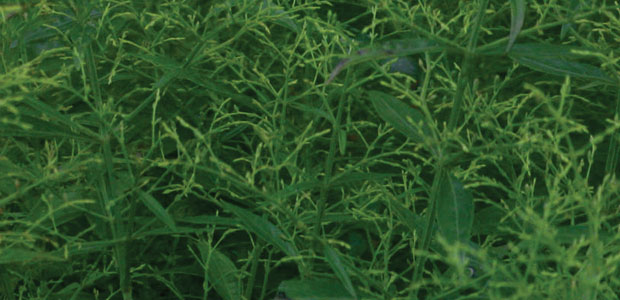Advertisement
Andrographis
King of the bitters

With the arrival of spring, many people follow their gut instinct and begin to focus on healthier eating and lifestyle habits in order to strengthen their resistance to illness and improve general well-being.
One of the simplest and most effective ways to boost vitality after months in Canadian winter hibernation mode is to take herbal bitters.
There is one bitter herb which stands out among the others: andrographis.
Traditionally used in Indian and Asian medicine, Andrographis paniculata is steadily gaining popularity in the West—and for good reason. This remarkable bitter-tasting herb makes an excellent spring tonic, especially for individuals who want to give their digestive and immune systems a boost.
Andrographis has a wide range of therapeutic indications, including its traditional use to lower fevers, prevent cold and flu, and treat digestive problems such as indigestion and poor appetite.
Embrace that bitter taste!
When we taste a bitter substance, the bitter-sensitive taste buds at the back of the mouth and tongue are stimulated. This triggers a cascade of signals which communicate important messages to the rest of the gastrointestinal tract and related organs, including the pancreas, liver, and gallbladder, in preparation for the food to come.
By increasing digestive juices and motility, andrographis extract promotes the efficient uptake and assimilation of nutrients from the digestive tract.
The second brain
In order to appreciate the importance of bitter herbs such as andrographis, and how this herb influences the body when ingested, the gastrointestinal tract should be regarded as another sensory organ.
As a sensory detecting system, the digestive tract is so complex that it is now thought of by many scientists as a second brain. Its entire surface contains highly specialized nerve, endocrine, and immune cells that respond to tastes and to the gastrointestinal contents.
As well as absorbing nutrients from food, the lining acts as an efficient immune barrier against potentially harmful substances. Incredibly, the gastrointestinal immune system harbours 70 to 80 percent of the body’s immune cells.
The gut/immune connection
There is increasing evidence that, as well as promoting good digestion, certain bitters also prime the immune system via the GI immune system. Research suggests that this is the case with andrographis.
The extract is reported to increase antibody activity and enhance the body’s ability to destroy dead or foreign cells (phagocytosis) by scavenger cells called macrophages, and to strengthen immunity and recovery from infection. This gut/immune connection justifies the approach of practitioners who recommend digestive tonics such as bitters to influence overall wellness.
Andrographis has a long history of use for cold and flu prevention and for speeding recovery time during a cold. In Asia this action has led to andrographis being referred to as Indian echinacea. It was even reported to stem the Spanish flu in parts of India during the 1918 pandemic.
Colds and flu
In one study involving outpatients diagnosed with the common cold, participants who were given andrographis extract demonstrated a significantly reduced number of sick days, improved symptoms, and hastened recovery.
In another study involving 158 patients diagnosed with the common cold, participants given andrographis extract experienced measurable improvements in symptoms such as headaches, cough, earaches, and expectoration.
In a published review of the safety and efficacy of a combination of andrographis and eleuthero root, research indicated that the combination alleviated cold symptoms.
Anti-inflammatory action
Numerous studies have indicated that the andrographis herb possesses anti-inflammatory action, justifying the herbfs use in inflammatory conditions, including inflammatory bowel disease, arthritis, and respiratory tract infection. There is evidence that the herb also stabilizes mast cells and has antiallergic actions.
Preparations
Digestive tea
Place 1/2 tsp (2 mL) of andrographis leaf in a teapot with several slices of fresh ginger root and cover with 1 cup (250 mL) of just-boiled water. Steep for three minutes.
Dosage: Take a few sips several times throughout the day prior to meals to stimulate digestion.
Tincture
Dosage: 1:5 (25 percent ethanol) 1 tsp (5 mL), three times per day with a small amount of water.
Capsules
Dosage: 400 mg, three times per day.
Safety
Although andrographis is generally well tolerated, some studies have indicated that the herb may inhibit fertility and should be avoided by those who are trying to conceive.
Andrographis is contraindicated during pregnancy and while breastfeeding.




